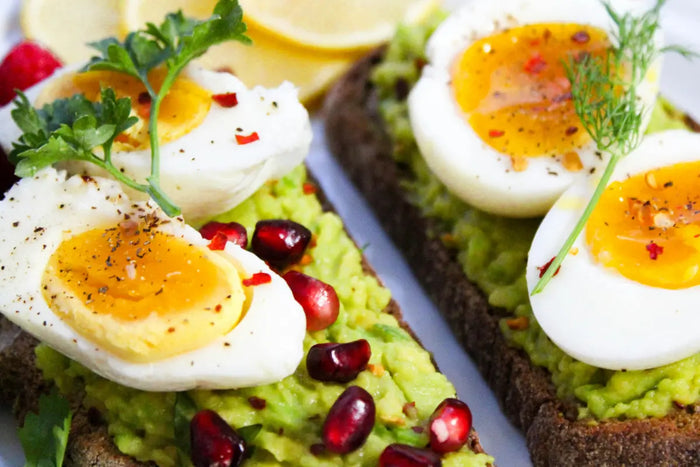It’s the reason you get up in the morning, it’s what you take a break for at work and it’s what you meet your friends to get at the weekend. Have you guessed what we’re talking about yet? It’s coffee, of course.
Probably the most tolerated addiction out there is a caffeine addiction. Around 50% of people enjoy a cup of joe every single day, from double espressos to blended iced lattes topped with a halo of whipped cream. We all know that the latter isn’t doing you any favours when it comes to losing weight, but what about the black stuff itself?
Most diets out there, from inflammation fighting diets to the Sirtfood diet to the military diet, don’t have an issue with allowing you to keep drinking coffee. As long as you’re not packing your early morning or mid afternoon Americano with tons of cream and sugar, you’re good to go.
However, scientists have yet to conclude whether coffee is harmful or helpful when it comes to losing weight. The research goes back and forth on whether sipping the caffeine-filled beverage helps you to shed pounds. As at Innermost we’re big fans of starting our days with a nice, hot cup of coffee, we decided to dig down and try to discover if coffee will help you on your weight loss journey once and for all.
Does drinking coffee help you lose weight?
While there have been some studies that go some way to prove that drinking coffee can help with weight loss, there’s no enough evidence yet to categorically be sure.
One 2019 study examined the fact that caffeine may stimulate brown adipose tissue, which is the fat in your body which burns calories. It found that drinking a single cup of coffee increases your metabolic rate to the point of inducing activity in brown adipose tissue, which leads to fat burning and weight loss.
A study by Harvard public health researchers in 2020 discovered that people who drank four cups of coffee per day had a 4% decrease in body fat. Although they’re not certain, the researchers thought this is because coffee increases your metabolic rate, which can increase the number of calories your body burns.
In addition, caffeine has been proven to have a positive effect on exercise capacity and endurance, and in delaying the onset of fatigue. This means it allows you to exercise faster, for longer, and feel less tired.
The National Collegiate Athletic Association in the US has even started to ban caffeine at high doses, such is its positive effect on performance during exercise. A study found that 400mg of caffeine increased endurance in athletes, and during a test they were able to cover one to two miles more ground when running than the placebo group were. Another study showed that during a 1,500m run, people who drank regular coffee were 4.2 seconds faster than those who drank decaf. Thus while caffeinated coffee might not have been categorically proven to increase the body’s fat burning ability, it does seem to increase your ability to exercise in a positive way.
Does coffee stop you from losing weight?
On the other side of the coin is caffeine’s more negative side effects (apart from the fact that if you have a daily coffee shop habit, you’re spending money every day that you could put towards your favourite exercise class or a new variety of protein powder - although we too know the feeling of that 10am oat milk latte craving).
Drinking coffee has been linked to craving more sugar. This means that if you enjoy a cappuccino in the morning, you could be more likely to reach for sugary snacks come the 4pm slump. A study published in 2017 showed that coffee could confuse people’s taste perception of sweetness.
In addition, it’s been thoroughly proven that consuming caffeine can lead to trouble sleeping. A 2013 study in the Journal of Clinical Sleep Medicine concluded that drinking the stuff even six hours before your head hits the pillow can disturb your sleep. As insufficient or poor sleep has been linked to weight gain many times, this is a worrying correlation.
As we said before, drinking coffee is a mixed bag when it comes to weight loss. Much depends on how much coffee you’re drinking, when you’re drinking it and the effect you’re looking for when it comes to weight loss and performance. There might not be any fully conclusive evidence to support drinking coffee or not when it comes to losing weight, but that doesn’t mean that you can’t drink it if you want to - just be sure not to rely on it when it comes to shedding those pounds. That’s ok, however, because we have plenty of resources to help you out with that on our Insight blog.
Whatever you decide, try not to exceed 400mg of coffee a day or it’s likely that you’ll feel jittery and have trouble sleeping at night. And remember that caffeine is also found in other foods, such as matcha green tea and chocolate.
Fad or friend? Coffee and lemon
If you've got a TikTok account (or any social media platform, it seems), it's likely that you've stumbled across the latest weight loss fad: lemon coffee. Users on social platforms have been raving about this supposed quick and easy weight loss method - and to be honest, that raised alarm bells with us. Weight loss (well, effective weight loss) is never that quick, and is rarely an easy task.
So, of course, we investigated. If it sounds too good to be true, it probably is. At least when it comes to your health and wellness, that is.
The trend is simple: all you have to do is add lemon juice to your regular, plain old cup of black coffee. Half a lemon's worth, to be precise.
The latest weight loss hack is supposedly meant to combine the reported benefits of coffee for weight loss, and that of lemon water for detox. Both ingredients are said to suppress hunger, which in turn, supposedly leads to weight loss.
You heard it here though - there's no substantiating evidence to back up the effectiveness of this method, so if you're thinking about trying it, we'd probably suggest you save your taste buds that sour, bitter roller coaster.
Summary
So, does coffee make you lose weight? Does lemon coffee? Well, not really. It's just not that simple.
Here at Innermost, if weight loss if your fitness goal, we recommend a workout routine that prioritises cardio (and rest days, too), and a healthy, balanced diet that makes sure you are getting all of the nutrients you need whilst achieving a calorie deficit.
If you’re looking to get some caffeine in your life, though, it can be found in The Energy Booster and The Tone Capsules, perfect for that extra boost to power you through your workout.


















